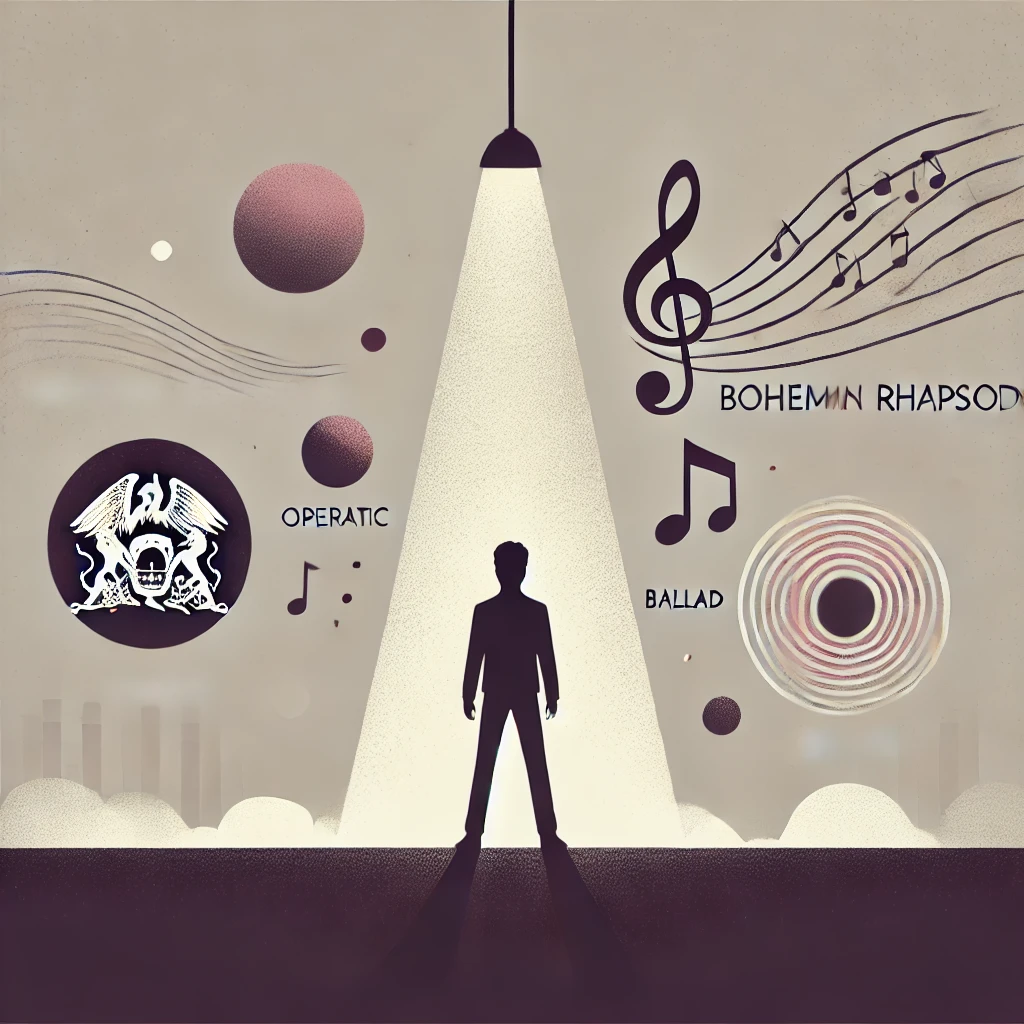Few songs in rock history are as iconic and mysterious as
Bohemian Rhapsody. With its cryptic lyrics and ambitious composition, it has captivated listeners for decades. But what exactly does its title mean, and what is the song truly about?
Let’s delve in.
Released on October 31, 1975, Bohemian Rhapsody became an instant landmark in music history. The title itself mirrors the song’s structure and themes. The term “rhapsody” refers to a free-form musical piece, often flowing through different sections without a clear connection between them. This reflects the song’s dynamic shifts in mood and style. The word “bohemian” evokes an unconventional, artistic lifestyle -one that perfectly aligns with Freddie Mercury’s persona as both a performer and a visionary artist.
The song is remarkable not only for its bold composition but also for its groundbreaking music video. At a time when three-minute radio hits dominated the airwaves, Queen took a daring risk with this six-minute rock opera. Their gamble paid off, cementing the band’s place in rock history and transforming the visual presentation of music in the process.
What is the song really about?
Freddie Mercury never revealed the true meaning of Bohemian Rhapsody, leaving its interpretation open to the imagination of listeners. Over the years, countless theories have emerged. Some believe the song tells the story of a man who has committed a crime and is now facing judgment. Others interpret it as a metaphor for inner turmoil, guilt, or personal transformation. Some even see parallels with literary and religious themes, drawing comparisons to works like Faust or biblical narratives of sin and redemption.
The song itself is a tapestry of distinct sections, each contributing to its overall mystery:
A cappella introduction – This is correct, as the opening section features a multi-tracked vocal harmony without instrumental backing.
Ballad – The ballad section does focus on the protagonist’s confession and inner conflict. It conveys feelings of regret and guilt, particularly in the lines “Mama, just killed a man.” This section sets the emotional foundation of the song.
Guitar solo – This is a pivotal moment in the song. It’s more than just an emotional intensity; it acts as a transition point between the softer ballad section and the operatic drama that follows. So, you could emphasize the transformative nature of the guitar solo in this context.
Opera section – This section is key to the song’s identity, with its operatic flair and over-the-top theatricality. The battle between “Scaramouche” and “Figaro” references different historical and fictional figures, contributing to the sense of a grandiose inner and outer struggle. It’s a combination of melodrama, opera, and dark humor.
Rock section – This dramatic release of energy and defiance occurs after the operatic tension builds up. The aggressive guitar riff and strong vocals mark this as the most “rock” part of the song, with its defiant chorus: “So you think you can stone me and spit in my eye?”
Outro – The song concludes with a melancholic, almost resigned outro. The mood here is somber, reflective, and somewhat tragic, resolving the song’s earlier emotional and operatic tension.
Lines like “Mama, just killed a man” suggest a profound sense of guilt or a pivotal moment of transformation. The operatic section – complete with dramatic phrases like “Scaramouche, will you do the Fandango?” and “Bismillah! We will not let you go!” – adds to the song’s mystique. It evokes a grand, theatrical performance, full of operatic flair and emotional depth.
The references throughout – ranging from commedia dell’arte (Scaramouche) to religious expressions (Bismillah) to classical opera (Figaro, Magnifico) – weave a complex, enigmatic tapestry of cultural influences, adding layers of meaning to the song.
Freddie’s Vision
Ultimately, Bohemian Rhapsody is a song that transcends clear-cut interpretation. As Freddie Mercury once said, “It’s one of those songs which has a fantasy feel. I think people should just listen to it, think about it, and then make up their own minds as to what it says to them.”
Whether it’s about guilt, redemption, identity, or something deeply personal to its creator, one thing is certain—Bohemian Rhapsody remains one of the most compelling and thought-provoking songs in rock history, continuously sparking new interpretations and inspiring generations of listeners.
In the end, its ambiguity is part of its genius. The song’s timeless appeal lies in its ability to evoke different emotions and interpretations, offering something new with each listen. Whether you’re exploring its complex themes or simply enjoying its unparalleled musicality, Bohemian Rhapsody will always be a monumental achievement in the world of rock music.


Leave a Reply